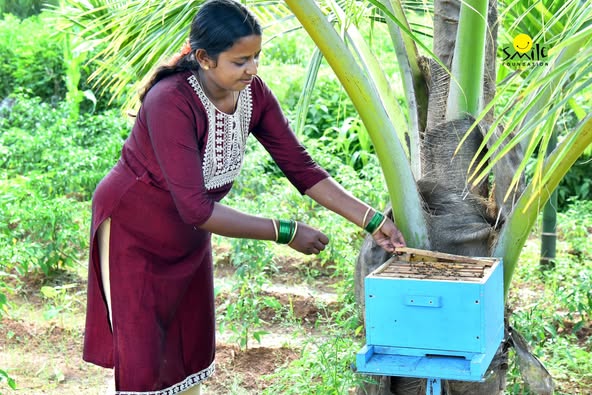Globally, businesses are an integral component in accomplishing the UN Sustainable Development Goals. There is no way out for companies and brands to stop acting and accepting responsibility for their actions that go beyond profit and serve society in an era when terms like eco-friendly, social enterprise, sustainability and so forth are being used increasingly.
A firm that causes no damage, remains fully aware of the consequences of its activities, always tries to improve and addresses at least one social or environmental issue through its operations or business model is often considered a conscious business.
According to a recent Brain & Company survey from 2022, 52% of Indian urban consumers anticipate spending more on sustainable products over the following three years. More than 60% of Indian consumers are willing to pay more for “sustainability products,” according to a poll conducted by the consultancy on consumer attitudes toward sustainable brands and purchasing patterns.
What is conscious branding and why is it important?
For ‘socially conscious brands’, businesses, social responsibility and ethical practices are equally prioritised as core business objectives, not just commercial activity. As social issues like representation, human rights, the environment and racial and gender equality have grown in popularity as conversation topics, the entity of social responsibility in a business has become more and more important to consumers. Not only have news organisations and media experts started this discourse, but regular individuals are now utilising social media to mobilise friends and followers and advocate for causes they support.
Most critics have argued that the fundamental essence of business has traditionally excluded society as a stakeholder; yet, with changing times, a growing number of investors and customers are embracing social responsibility and promoting reform.
Acting in the environment’s and society’s best interests is a social responsibility requirement for both people and businesses. Hence, the term ‘corporate social responsibility (CSR)’ applies to businesses and it’s becoming more popular due to shifting social norms. Numerous businesses have integrated CSR into their core operations without sacrificing profits.
The Companies Act of 2013 requires companies with a minimum net worth of INR 500 crore, a turnover of INR 1000 crore, or a net profit of Rs. 5 crore to dedicate 2% of their profits to corporate social responsibility (CSR). Through CSR programmes, companies directly contribute to the betterment of the country through a range of projects of their choosing.
The International Organization for Standardization (ISO) stresses that a company’s ability to run successfully and efficiently depends on its balance between adhering to social and environmental issues and seeking economic performance. A business can adopt CSR by encouraging volunteerism, giving back to the community and committing to moral hiring procedures and environmental improvements. They also owe it to their workers to treat them morally, which includes paying them a fair wage even in the absence of much employee protection legislation.
CSR is a smart business practice and failure to carry it out wisely may damage the balance sheet. It can also raise spirits within the organisation, particularly if it inspires its workers through social causes.
How to build a socially conscious brand?
By integrating social responsibility into your business practices, you can attract and retain customers who share your values and differentiate your brand from your competitors.
The brand might start by deciding which social concerns it wants to address and then directing its policies and decisions. For instance, your policies and procedures should represent your mission and values if you want to create environmental sustainability. Integrating social responsibility into your business model is critical after you’ve established your mission and core values. To do this, consider how your operations, goods, and services might have a beneficial social and environmental impact—for instance, using fair labour practices, cutting back on your carbon footprint or using sustainable materials in your products.
Incorporating a social conscience into your brand also requires active stakeholder engagement and an awareness of the evolving requirements and concerns of your suppliers, customers and the community in which you operate. Here, you might consider holding focus group discussions to gain feedback on your goods or services or conducting quarterly or annual surveys to learn about your client’s beliefs and preferences.
Finally, nothing is possible without ongoing impact assessment, surveying and monitoring. Finding areas where the influence may be analysed and requiring improved models is crucial, as is figuring out what works and what doesn’t.
Your brand’s social media commitments can’t just be a PR strategy. If you want them to be genuinely effective, the brand’s meaning and purpose must include a social conscience. Knowing what your brand represents is critical, as is figuring out how to use that to benefit the community.
Emphasising long-term CSR impact
Being inclined toward social responsibility and advocating for sustainable development quickly becomes a distinguishing characteristic for growing brands. established by a team of business experts. Smile Foundation, established by a team of CSR experts, has always viewed the corporate sector as an ally in enacting long-lasting local change by successfully partnering with over 400 international businesses for over two decades.
Smile Foundation emphasises that if enough money is set aside and invested in the vocational education of Indian youth, particularly those from underserved social groups, a large and youthful population can become the nation’s greatest asset. It uses its Smile Twin e-learning programme or STeP, to skill children dynamically. It hopes that long-term CSR collaborations will significantly expand the range of its livelihood initiatives.









